Editor's note: After 55 days and nights of "lightning-speed" marching with the spirit of "one day equals 20 years", the General Offensive and Uprising of Spring 1975 of our army and people achieved complete victory, gloriously ending the struggle to unify the country.
It was the result of the Vietnamese people’s steadfast, courageous struggle, full of loss and sacrifice for the goal “Nothing is more precious than independence and freedom”. This great victory ended 30 years of revolutionary war (1945-1975), opening a new era - the era of national independence and socialism.
50 years after the historic victory, the country has entered a new era - building a glorious, bright future for the nation. On this special anniversary, VietNamNet introduces a series of articles with the theme "April 30 - a new era".
Here, experts, military experts, and historical witnesses shared memories, lessons, and experiences from the victory of the resistance war against the US to save the country. That is the strength of great national unity - the source of victory of the resistance war, the will to protect the independence and autonomy of the nation and unify the country, and the belief in entering a new era of national development.
It is also a lesson in mobilizing people's strength, gaining international support; a lesson in diplomacy and military in the resistance war for the task of protecting the Fatherland early and from afar. It is the creativity, resilience, and strength of the people's war for the cause of national liberation, a great lesson in promoting internal strength for the cause of building and protecting the Fatherland.
VietNamNet invites readers to "visit" political bases in the heart of the enemy: Cu Chi tunnels, Rung Sac war zone, Vuon Thom base, Ban Co labor area, commando bunkers in Saigon's inner city...
And most especially, readers will meet again the “living monuments”, the rare remaining witnesses of historical moments. They are the uncles and aunts who are former commandos, former political prisoners, those who participated in student movements, urban struggles… They have devoted their youth, faith, determination and hope to the day of total victory.
Intelligence Colonel Nguyen Van Tau was born on October 30, 1928, nicknamed Tu Cang.
Joining the revolution in 1945 in the Vanguard Youth movement, from 1947 to 1954, he was a military intelligence officer of the Viet Minh in Ba Ria - Vung Tau province.
In 1954, he gathered in the North, changed his name to Tran Van Quang and became a reconnaissance platoon leader, then political commissar of the information company, Division 338.
In 1961, he returned to the Southern battlefield. In May 1962, Tu Cang was officially assigned to command the H63 cluster.
In 1971, the H63 intelligence group was honored as a Heroic Unit of the People's Armed Forces, with group leader Tu Cang, spies Hai Trung (Pham Xuan An), Tam Thao (Nguyen Thi My Nhung) and traffic girl Nguyen Thi Ba.
He began his conversation with us by stating: " In general, without the people, intelligence soldiers would not be able to survive."

In 2005, Colonel Nguyen Van Tau was awarded the title of Hero of the People's Armed Forces, and was one of the typical and exceptionally excellent intelligence cluster leaders. Photo: Nguyen Hue
When we were operating in the base, we had forests and fortifications to protect us. When we entered the city, we were raised and protected by the masses.
Intelligence cluster leaders must strictly adhere to the principle of secrecy, and in contact with the masses, they must follow Uncle Ho's teachings in his letter to the Intelligence Conference in August 1949: "Intelligence, like everything else, must rely on the people. Therefore, intelligence must strive to get the people's help and then it will be a great success."
The hearts of Saigon - Gia Dinh people
Back then, when I was working in Saigon, I created many places to stay for myself.
There is a place I always remember with gratitude and love, the family of Mr. Nguyen Dang Phong and Mrs. Dao Thi Tu at 136B Gia Long Street, right near the Independence Palace. I often stay here when I go to the city.
Both of them were from Noi Due commune, Bac Ninh district. The family was very well off, with a fabric stall at Ben Thanh market. In the house, besides the two of them, there were four beautiful young daughters and several grandsons, the children of their brothers who had escaped to fight in the resistance war.
Mr. Phong loved me like a son. And to do that, I had to be good. At night, when I went to bed, I lay next to him on the bed next to the wall. I massaged him, told him stories about the revolution, about Uncle Ho. The house was leaking, so I climbed up to the roof to fix the tiles. Mr. Phong had asthma, and at mealtimes there was braised fish. He picked up a piece of fish to taste, praised his wife's cooking, and then put it in my bowl. I ate it without hesitation.
One night, he confided to me privately: “My current capital, including money in the bank and the fabric stall at the market, is 36 million (equivalent to 12 thousand taels of gold, at that time in Saigon, the price of gold was 3 thousand dong/tael). I know that you came here to join the revolution. I know that if they forced you to stay in this house, everything would be gone, and the grandchildren would not be able to go to school anymore. But I love the revolution, I love you. You can rest assured to work, and guide your younger siblings to work.”
As instructed, I sent three of his four daughters into the intelligence organization. Among them, Tam Thao became a good spy, going to the Navy Command of the Republic of Vietnam every day to work as a personal secretary for the American advisor major (this was an intelligence officer in the US army). Lan worked as a legal liaison in Saigon for the H63 intelligence group. Chin Chi escaped to the war zone to work as a technical reconnaissance officer for the Military Intelligence Department of the B2 General Staff.
On the day peace was restored, we proposed and the State awarded Mr. Nguyen Dang Phong the third-class Anti-American Resistance Medal.

"As an intelligence officer, I not only care about my own people but also have to connect with the people around me." Photo: Nguyen Hue
Not only at Mr. Phong’s house, I also stayed in many other places in the inner city of Saigon. One night, after the Tet Offensive, I stayed at a poor worker’s house in District 3. The owner of the house was Ms. Pham Thi Gom - the sister of my comrade Tu Lam. Her husband was a bricklayer, so that night he had to stay at the construction site. There were only a few mother and children in the house on the ground floor while I hid in the attic.
That night, enemy planes circled the sky, blaring loudly throughout the city, saying, “Anyone who harbors the Viet Cong will be imprisoned for 5 years or sentenced to death.”
Guessing that the landlady would be very worried, I went down the stairs. Before my eyes was the sight of her hugging her child and trembling violently. I encouraged her: "They called out like that, they didn't know I was here, why are you so scared?"
She said: "To tell you the truth, I have a heart condition and cannot sleep after hearing that." I said: "I will try to wait until morning and then you go somewhere else." The next morning I left. Once the people are sick and cannot bear the threat of the enemy, the cadres should go away and not make the people worry and endure. After the country is unified, I also proposed to reward the owner of this house.
The house at 113 Co Bac Street is owned by Mr. Hoang Nam Son, whose real name is Tran Van Cat, owner of the Embassy Hotel. I built Mr. Son into a spy to provide information and documents for the H63 cluster.
On the night of May 4, 1968, our army attacked Saigon, opening the second phase of the Mau Than Spring Offensive. The enemy searched the pocket of a soldier who died on De Tham Street and found a piece of paper with the address 113 Co Bac. Perhaps our soldier kept this piece of paper with the address as a gathering place and shelter before the battle.
The police came to arrest the owner of the house, Ms. Hoang Thi Tuoi, Mr. Son's wife. She was taken to the district where she was beaten and tortured for "harboring the Viet Cong". At the same time, they had people waiting across the street, arresting anyone who came to Mr. Son's or Ms. Tuoi's house.
Around May 8, I went to find Mr. Son to get some news. I got out of the taxi at the corner of De Tham Street and walked, turning onto Co Bac Street without knowing that the police and secret agents were setting traps here.
When I got close to number 113, I saw Mrs. Le Thi Tam, who lived next door, sitting on the sidewalk mending a shirt. I walked over and she looked up. Usually she was very happy to see me, but that day she frowned strangely, her eyes showing a solemn look. I knew something was up so I walked away without saying goodbye to her, like a normal person passing by on the street.
A few days later, when we met at another meeting place, Mr. Son told me that his wife had been arrested and that the secret police were lurking all over the street. Because Mr. Tam was worried about me, he sat on the sidewalk every day sewing, but in reality, he was watching for me to appear. His eyes that day saved me.
I tell this story to show that as an intelligence officer, we not only care about our own people but also have to connect with the people around us.

At 97, Mr. Tu Cang is still very clear-headed. He regularly attends meetings and talks. Photo: Nguyen Hue
Once in Cu Chi district, I also survived thanks to the people. That was in 1967, the armed team of cluster H63 was stationed in Phu An hamlet, Phu Hoa Dong commune. The enemy sensed that there was a Viet Cong team living in the tunnels in this area, and every night they came up to the surface and used radios to send Morse signals to their receivers, so they sent bulldozers to find and destroy the secret tunnels.
That day, they sent the bulldozers ahead, followed by the infantry. We sat in the tunnel, feeling the ground shake. Suddenly a beam of light shone down, I looked up and saw a piece of sky. It seemed that the tunnel cover had been hit by the bulldozer and was warped. At that moment, the car next to it came, bulldozing the bamboo bushes, causing the bamboo to fall and cover the warped tunnel. It had just gotten dark so the infantry did not discover it, but tomorrow morning, they would definitely come back to continue the search.
We were surrounded so it was not easy to escape, and the enemy was so close that we could not repair the hatch. The only way left was to ask the people for help.
I waited until nightfall before going up, calling the landlady and saying, “Every time I see you guys passing by here, you disappear in a flash. Today I told you there was a secret bunker there. But this afternoon, the Americans tilted the lid, and we couldn’t fix it in time. Come out here, I’ll show you the tilted lid. When it’s late at night, we’ll crawl down there, and you can stay up there and cover it up and camouflage it.”
The landlady was a simple, gentle farmer who did as she was told and helped us escape.
These are just a few stories about the hearts of the Saigon people during the war against the Americans. The people knew that if the cadres were caught in their homes, if the bunkers containing explosives and guns were exposed, their assets would be destroyed, and torture and imprisonment would also await them. But the people were willing to accept it. Without their help, the intelligence soldiers, commandos, and special forces could not have stayed in Saigon to carry out their missions.
The line between life and death
During our conversation, while Mr. Tu Cang was very excited when talking about the breathtaking battles he participated in, there were times when the old colonel's voice dropped and his eyes filled with tears when talking about his comrades who fought together in the past.

"If my soldiers are captured, they will die rather than confess." Photo: Nguyen Hue
That day, preparing for the first battle of Mau Than, the platoon leader Tu Lam was sent down to help me. Tam Kien led Tu Lam across the fields and hills to Binh My. When they reached Hoc Mon, Tu Lam was captured. Tam Kien ran back to report: "Seeing the enemy fighting fiercely, exploiting the place. All three of us know this place, so now we have to move."
I felt so sad when I heard her say that. Tu Lam had been with me since 1962. I just told the liaison: “Tu Lam will die but will never reveal our arrest. But the principle is to move, so you go and keep the secret line to protect Mr. Pham Xuan An. I will keep these two grenades and wait. I believe that Lam will not lead the enemy back. But if he does, I will share this one with him, and throw the other one at the enemy. If the cluster leader is sacrificed, the superiors will send another officer down, but we must keep the line secret, the secret for An.”
And it is true that when my soldiers were captured, they would rather die than confess. Tu Lam later died in Phu Quoc.
If our soldiers confessed, we wouldn't be able to run away. If our soldiers were captured, they would rather die out there in Phu Quoc than confess to us.

Mr. Tu Cang (top row, second from right) at the rally celebrating the victory on April 30, 1975 in front of the Reunification Palace. Photo: Provided by the character
Some time later, another guy was also arrested, named Huynh Van Dien, the traffic team leader. That day, Dien brought documents to Ben Co hamlet, Phu Hoa Dong commune, with the group of secret tunnels to return to Ben Dinh the next morning, when the Americans who were patrolling at night discovered it. At that time, I was in Ben Dinh, 2km from Ben Co.
The liaison girls ran down to ask my opinion: "Now that Dien has been arrested, and he knows all about us, what can we do, Brother Tu?"
I said: "Don't worry, my soldiers know. If they are captured and killed, they won't tell anyone. They took us in the jeep to threaten you, but they won't tell anyone."
Later, the enemy tortured him so much that they still couldn't get any information out of him, so they thought of a way to call Dien's mother in to watch them torture their son. The mother also gave advice, then said: "Uncle Tu sends his regards."
Before that, I went to the strategic hamlet to contact this soldier's family and talked to his mother, so she knew me.
Later, Dien was a prisoner exchanged with the US in 1973, after the Paris Agreement was signed. When they met, he said: "Hearing my mother say that made me feel secure, no matter how they beat me, I wouldn't confess."

The room at his private home where Mr. Tu Cang receives guests and works. Photo: Nguyen Hue
And we cannot help but mention the incident in the Mau Than campaign in 1968. While the special forces were attacking and capturing the Independence Palace, I was in the attic of spy Tam Thao's house next door, observing and reporting.
According to the rules of operation, I was not allowed to use guns. But I saw that our brothers were out of bullets while fighting the enemy. They stood on the upper floors and threw down whatever they could find. Feeling sorry for them and wanting to give everyone more time to react, I took out my gun and fired two shots, killing two enemies.
So the enemy searched the neighborhood near the Independence Palace. When they reached Mr. Phong's house, I heard the enemy's footsteps coming up the stairs. I held two guns in my hands and waited in my hiding place. I also prepared two bullets in my pocket, intending to commit suicide after I used up all the bullets.
I waited and thought: “I am working because of the people. If I open fire here now, this whole family will be affected, it will be a shame for them.” So, I continued to wait for the enemy to come closer.
When the enemy was only 4-5 meters away from me, Tam Thao opened the door, pretending to have just woken up, bewildered and unaware. In her room hung a photo of her with an American officer and she herself was working for an American agency. After exchanging a few words, the soldiers awkwardly apologized to Tam Thao and retreated to search another house. I had a narrow escape, so I owe my family a lot of gratitude.
In general, like a thread, it can be caught, it can die.
Someone once asked , “How do you teach your soldiers not to confess when they are captured?” I said, when we were eating together, I told my soldiers, “You must write down four words on your chest: Consider yourself dead.”
Someone asked me , “What characteristics do you need to be a reporter?” I answered that you need two things. The first is courage - the courage to accept sacrifice, and the second is intelligence.
So "how to train loyal people who are willing to die rather than confess?", we must educate regularly. And equally important is the exemplary role of the commander.
During 10 years of intelligence work, I went in and out of Saigon city continuously. The soldiers saw me going in and out continuously so they loved me and were not afraid of death.

"Looking back, I see my life is… pretty good." Photo: Nguyen Hue
Now 97 years old, thinking back, I see that my life was… quite interesting. A poor student who went to the village to sell pork, but on April 30, 1975, he became the Political Commissar of the Special Forces Brigade - the leading unit in the historic Ho Chi Minh campaign, sitting majestically in a Jeep that had just been taken from a Saigon lieutenant colonel, and bravely entering the city with his comrades.
And also in that Jeep, I drove back to meet my beloved wife, whom we had to be separated from for decades due to circumstances. At 11:30 pm on April 30, 1975, in a small house in Thi Nghe, Binh Thanh district, my then 28-year-old daughter held her 3-year-old grandchild and babbled hello to her soldier grandfather. It was a night filled with happiness after such a long separation.
Colonel Nguyen Van Tau was also the Political Commissar of the 316th Special Forces Brigade, the unit that attacked Rach Chiec Bridge during the Ho Chi Minh Campaign in 1975. Rach Chiec Bridge is one of three vital bridges in the East leading to Saigon. On the morning of April 27, 1975, the enemy combined infantry, tanks, warships and helicopters to counterattack and retake the bridge. They had more than 2,000 heavily armed soldiers, while our main unit, Z23, had only more than 70 men. Mr. Tu Cang recalled: “Every time the attack failed, the enemy retreated and used artillery and helicopters to fiercely bombard our positions. At 12 noon on April 27, our troops had to cross the wide river and retreat to hide. In this battle, 52 officers and soldiers were sacrificed. There were comrades who accepted sacrifice to protect their comrades. That was comrade Nguyen Van That who stayed at the bridgehead to block the enemy's pursuit. Comrade That fought alone until he ran out of ammunition. The enemy captured him, cut him in half and threw his body on the grass. Although his leg was broken, liaison soldier Vo Van Tan still used a grenade to fight the enemy to the death, killing 5 of them. After being captured by the enemy and brutally tortured, he still resolutely refused to confess...". By the evening of April 29, Brigade 316 was ordered to continue to capture Rach Chiec bridge, preventing the enemy from destroying it to welcome troops from the East into Saigon. The remaining soldiers of Z22 and Z23 (belonging to Brigade 316) immediately prepared for the battle. At exactly 5:00 a.m. on April 30, 1975, the unit opened fire to capture the bridge. The defeated enemy troops from Xuan Loc and Long Thanh (Dong Nai) gathered here in large numbers, but their morale was extremely confused. Therefore, when we opened fire, they only fought back weakly and then abandoned their weapons and fled. From this moment, Rach Chiec Bridge was held firmly by Brigade 316, but the main attacking unit, Z23, had only 10 men left. At 6:30 a.m. on April 30, 1975, tanks of Brigade 203 crossed the bridge into the city, heading towards the Independence Palace. |
Recorded according to Colonel Tu Cang's story
Vietnamnet.vn
Source: https://vietnamnet.vn/nguoi-cum-truong-tinh-bao-huyen-thoai-va-4-chu-ghi-trong-nuc-coi-nhu-chet-roi-2383222.html





![[Photo] General Secretary To Lam visits exhibition of achievements in private economic development](https://vphoto.vietnam.vn/thumb/1200x675/vietnam/resource/IMAGE/2025/5/18/1809dc545f214a86911fe2d2d0fde2e8)

![[Photo] National conference to disseminate and implement Resolution No. 66-NQ/TW and Resolution No. 68-NQ/TW of the Politburo](https://vphoto.vietnam.vn/thumb/1200x675/vietnam/resource/IMAGE/2025/5/18/adf666b9303a4213998b395b05234b6a)
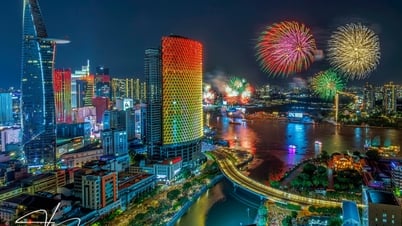

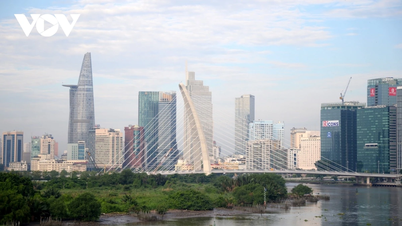

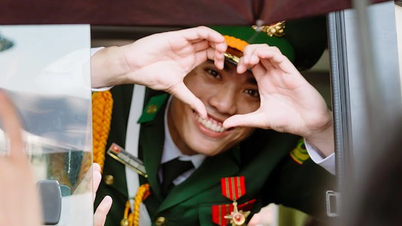

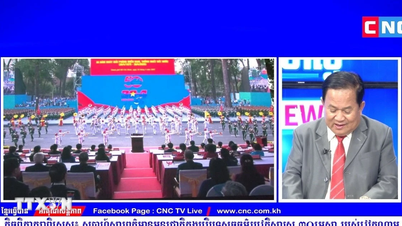

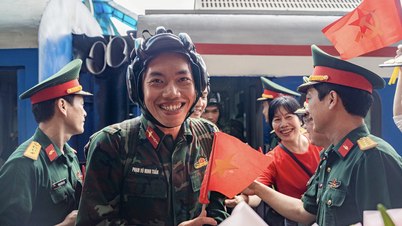

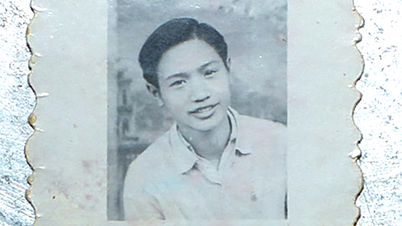















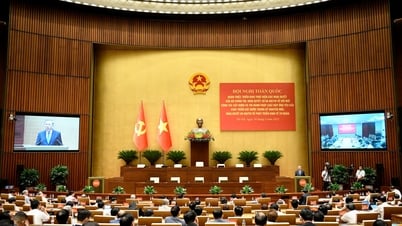


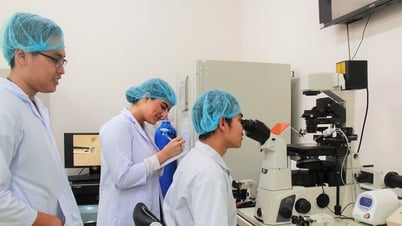
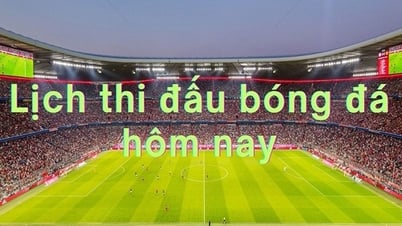

![[Photo] Prime Minister Pham Minh Chinh chairs meeting on science and technology development](https://vphoto.vietnam.vn/thumb/1200x675/vietnam/resource/IMAGE/2025/5/17/ae80dd74c384439789b12013c738a045)
![[Photo] More than 17,000 candidates participate in the 2025 SPT Competency Assessment Test of Hanoi National University of Education](https://vphoto.vietnam.vn/thumb/1200x675/vietnam/resource/IMAGE/2025/5/17/e538d9a1636c407cbb211b314e6303fd)




































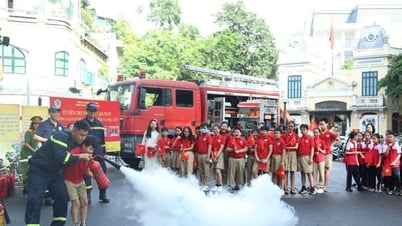

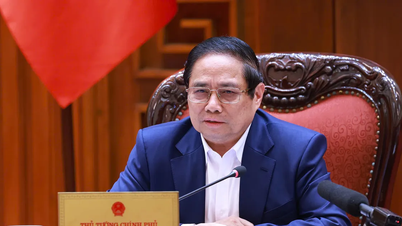
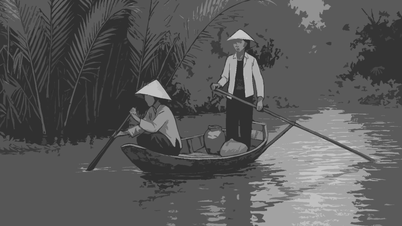

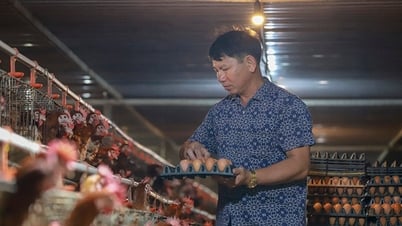


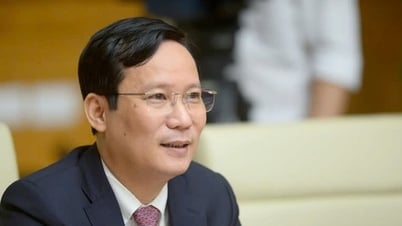









Comment (0)